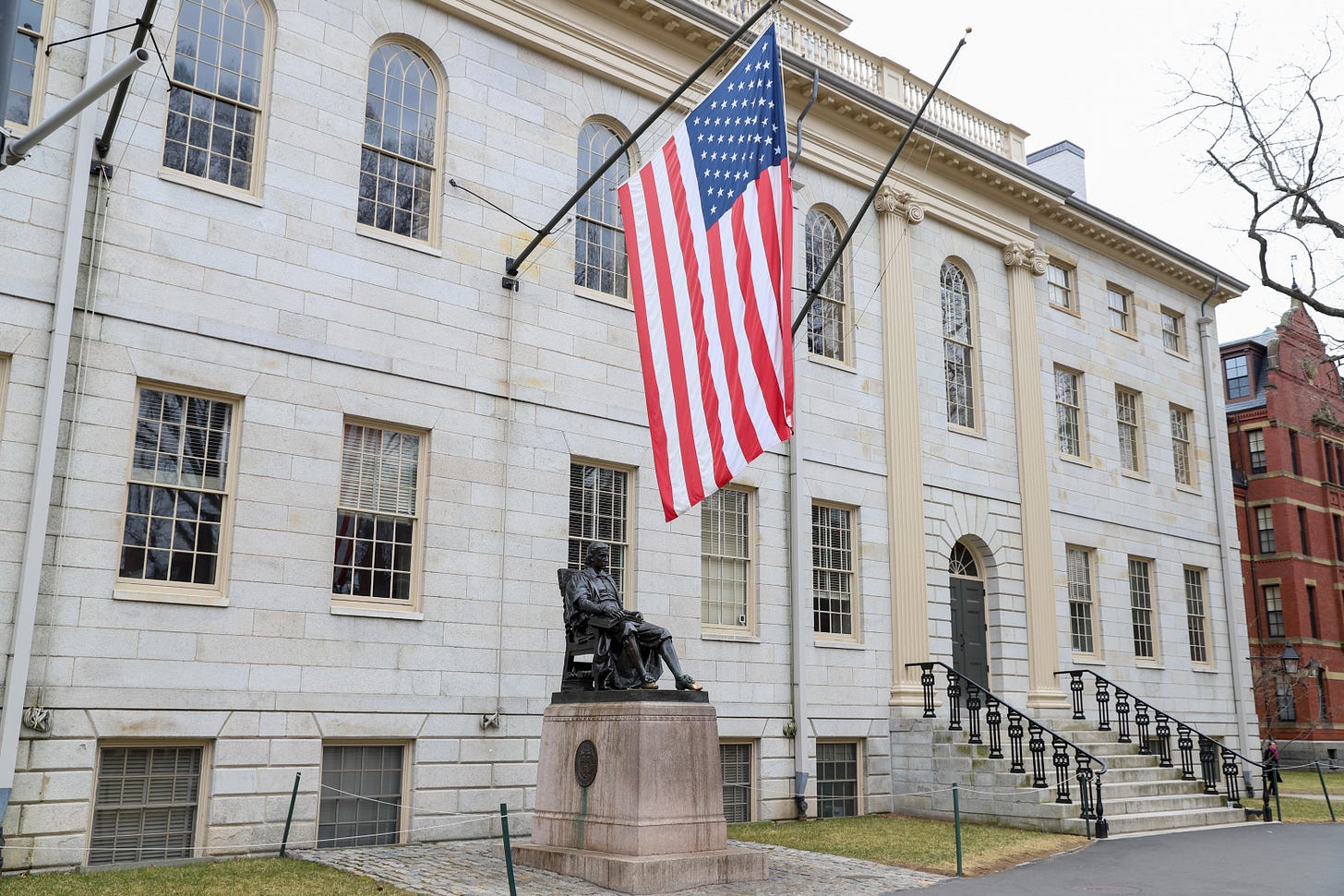
Photo By Ryan N. Gajarawala
University President Lawrence S. Bacow announced Monday afternoon that Harvard had dropped its social group sanctions as a result of a recent Supreme Court decision on sex discrimination.
But while Bacow announced the decision, it has perhaps the largest implications for another Harvard administrator: Dean of the College Rakesh Khurana, who made reshaping undergraduate social life his signature undertaking.
In 2016, Khurana rolled out the social group policy barring members of unrecognized single-gender social organizations — starting with the Class of 2021 — from holding leadership positions in student groups and athletic teams and from receiving College endorsement for certain postgraduate fellowships.
Since they were first announced, the policies have generated debate in the form of protests, letters, Congressional lobbying efforts, and — in late 2019 — the pair of lawsuits that unraveled them.
After the United States Supreme Court handed down a landmark decision in Bostock v. Clayton County, the Harvard Corporation recognized that the case might have significant consequences for the sanctions. In the end, administrators elected to drop the policies rather than fight for them in the courts.
In an email to undergraduates Monday, Khurana mourned the policies, writing that “while Harvard is withdrawing the policy, I still strongly believe that gender discrimination undermines our community’s values.”
Though he criticized the clubs before even becoming Dean, Khurana had first floated the possibility of the sanctions in April 2016, at a behind-closed-doors meeting with final club leadership.
A month later, former University President Drew G. Faust announced that she would accept his first public proposals to regulate unrecognized single gender organizations in response to the recommendations of a University-wide report on sexual assault prevention.
Marking a historic policy reversal for the University, the decision quickly garnered national attention and spurred polarizing sentiments across campus among students, faculty, varsity coaches, and members of the Harvard Corporation. In 1984, Harvard had issued a similar ultimatum for clubs to go co-ed, prompting mass disaffiliation from the University. For decades after, administrators had largely chosen to avoid involvement in final clubs and Greek groups.
After some professors alleged faculty members were not properly consulted during the policy's formulation, then FAS Dean Michael D. Smith created a committee — co-chaired by Khurana — to revise or replace the sanctions in 2017. The committee released its preliminary recommendation in July: to ban all social groups, including gender neutral groups.
Though the committee claimed strong majority support for the proposal, The Crimson reported in July that the ban received only seven votes in the 27-member body.
Three months later, the committee published a final report rescinding the proposed ban and instead suggesting three options: The original May 2016 policy, a complete ban of single-gender final clubs and Greek organizations, or a set of “other possible solutions.”
After the report and the controversies that accompanied it, Khurana receded from the sanctions spotlight. Questions of implementation, he said, would fall to Dean of Students Katherine G. O’Dair and Associate Dean of Student Engagement Alexander R. Miller.
Since they first took effect roughly three years ago, the sanctions’ impact has been mixed. The policies remain relatively unpopular with undergraduates — in The Crimson’s survey of the outgoing senior class, nearly half of graduates said they disapproved of the sanctions, and only a third approved.
And despite the relative prominence of all-male groups, the sanctions all but dissolved Harvard’s all-female social organizations while largely failing to touch their counterparts. Every single all-women’s social club eventually opted to go co-ed, though Harvard’s chapter of Alpha Phi later returned to campus.
It remains unclear how groups that went co-ed as a result of the sanctions will respond to the end of the policy.
Still, after nearly five years of turmoil, Khurana concluded his email Monday by urging students to act based on the spirit of the policies.
“I hope that for each of you that work will begin by examining the organizations you participate in, and asking yourselves who has access, and why. And I hope that you will consider making changes from within those organizations even in the absence of a College policy. I am committed to working with you as you think about what kind of organizations you wish to build, both on and off campus.”
—Staff writer Amanda Y. Su can be reached at amanda.su@thecrimson.com. Follow her on Twitter @amandaysu.
This Week’s Top Stories
Harvard Drops Social Group Sanctions Following Supreme Court Sex Discrimination Decision
By DECLAN J. KNIERIEM AND EMA R. SCHUMER
Grad Union Ratifies First-Ever Contract
By DAVIT ANTONYAN AND MEERA S. NAIR
Harvard Releases Gift Policy Guide, Outlines Considerations for Philanthropic Gifts



